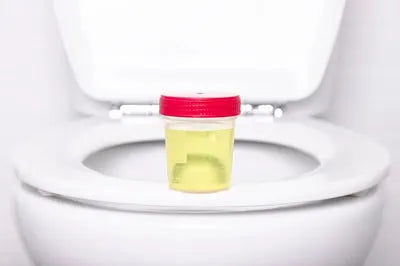You might not suspect this now, but you could be one of the 4.39 crore adults in India who remain undiagnosed with diabetes. This is according to a report by the National Library of Medicine in 2011, the numbers have only increased since. The symptoms of diabetes can develop gradually over time, so you might be at risk or already have it.
Nocturnal enuresis – meaning bedwetting, is one of the early warning signs of type 1 diabetes in adults. Unfortunately, bedwetting isn't widely recognized as an early sign of diabetes, as the connection between diabetes and bedwetting is not recognizable without some knowledge about both the conditions. This lack of knowledge often leads to delayed diabetes diagnosis, which can worsen the condition and potentially result in severe health consequences.
In this blog, we’ll help you understand what’s the link between diabetes and bedwetting, and how they both can be managed effectively to lead a healthy and happy life.
Understanding the link between Type 1 Diabetes and Nocturnal Enuresis in Adults
To understand the connection between type 1 diabetes and nocturnal enuresis, it's crucial to grasp the basics of both conditions.
Type 1 diabetes is an autoimmune condition where the body's immune system attacks and destroys the insulin-producing cells in the pancreas. Insulin is the hormone responsible for moving glucose (sugar) in the bloodstream to the cells, where the glucose is then used to produce energy. Without insulin, the body can’t regulate blood sugar levels effectively, resulting in high blood sugar levels.
Nocturnal enuresis, on the other hand, is the accidental or involuntary release of urine while sleeping. While it's more commonly associated with children, it can affect adults too, especially those with underlying medical conditions.
So, where’s the link? Well, when the blood sugar levels are consistently high, the kidneys – the organ responsible for filtering blood and making urine – works overtime to flush out excess blood sugar from the bloodstream. This leads to frequent urination at night or bedwetting.
Living with Type 1 Diabetes and Nocturnal Enuresis
The emotional impact of nocturnal enuresis can’t be understated. Having to keep up with type 1 diabetes treatment and management can already be demanding. Adding bedwetting to the mix can be emotionally devastating and affect your overall quality of life.
Older adults experiencing this condition are often shamed and are seen as a burden. “You are DOING IT ON PURPOSE! Why can’t you just get up and use the bathroom!?” is something many older adults hear before they are officially diagnosed with diabetes. As such, it can lead to feelings of shame, embarrassment, and social isolation. Regrettably, many fear discussing their condition even with their doctors and suffer in silence.
It’s important to remember that you’re not alone in facing this challenge. Many adults with type 1 diabetes deal with nocturnal enuresis, and there are strategies to manage it effectively.
Managing Nocturnal Enuresis in Adults with Diabetes
Managing nocturnal enuresis along with type 1 diabetes requires a multifaceted approach that addresses both diabetes and bedwetting. Here are some key strategies:
-
Better diabetes management:
Achieving better control of your diabetes can often lead to a reduction in bedwetting episodes. Work closely with your doctor to adjust your insulin regimen and monitor your blood sugar levels regularly.
-
Limiting fluid intake:
Limiting your fluid intake in the evening, especially in the hours leading up to bedtime, can help reduce the amount of urine your body produces during the night.
-
Practicing bladder training:
Practice bladder training exercises to increase your bladder's capacity and reduce the urge to urinate during the night.
-
Medications:
In some cases, doctors may prescribe medications to help manage nocturnal enuresis. These medications can help reduce nighttime urine production and improve bladder control.
-
Dietary choices:
Certain foods and beverages can irritate the bladder and become bedwetting causes. Be mindful of caffeine and alcohol intake, as they can act as diuretics and increase urine production.
-
Underpads:
Use absorbent bed pads such as Friends Underpads to protect your mattress and furniture and make clean-up easier.
-
Adult diapers:
Adult diapers are the most practical and effective solution to managing bedwetting. We understand that having to use adult diapers can be hard in the beginning, but it’s important to remember that using adult diapers to manage bedwetting is no different from using a cane to aid in walking.
You will come to love our Friends Adult Diapers in a few days anyway. With over 20 years of experience in the diaper manufacturing business, we understand your needs better than anyone and our Friends Overnight Diapers for managing bedwetting offer comfort, reliability, and peace of mind throughout the night.
Also, maintain a journal to track your progress. Documenting your diabetes and bedwetting management can help you and your doctor identify patterns and make necessary adjustments to your treatment plan.
Living with type 1 diabetes and nocturnal enuresis can present unique challenges but remember that help is available. Progress may be slow, and it may take time to find the right combination of strategies that work best for you. But ultimately, with patience and determination, you can significantly reduce the impact of nocturnal enuresis and improve the quality of your daily activities, sleep, and life.
FAQs:
Is nocturnal enuresis curable?
Nocturnal enuresis is often treatable but not always curable. The effectiveness of nocturnal enuresis treatment depends on the underlying cause. In many cases, lifestyle changes, bladder training, and medications can significantly reduce or even eliminate bedwetting episodes.
When should someone with type 1 diabetes seek medical help for bedwetting?
If someone with type 1 diabetes is experiencing bedwetting, it's advisable to seek medical help when the issue becomes persistent or starts affecting their quality of life. Occasional bedwetting may not be a cause for concern, but if it happens frequently and disrupts sleep, emotional well-being, or diabetes management, it's time to consult a healthcare provider.
Is diabetic bedwetting a serious problem?
Diabetic bedwetting itself is not a life-threatening issue, but it can be a significant concern for individuals dealing with type 1 diabetes. It often indicates that diabetes management may need adjustment. Persistent bedwetting can lead to emotional distress, sleep disruption, and a decreased quality of life. Additionally, it may be a sign of uncontrolled blood sugar levels, which can have serious health consequences.
Can type 1 diabetes be cured?
there is no known cure for type 1 diabetes. Type 1 diabetes is an autoimmune condition in which the body's immune system mistakenly attacks and destroys the insulin-producing cells in the pancreas. People with type 1 Diabetes require lifelong insulin therapy to manage their blood sugar levels. While research is ongoing, there is currently no definitive cure for the condition.
What colour is diabetic pee?
Diabetic urine does not have a specific colour that distinguishes it from non-diabetic urine. The colour of urine can vary depending on factors like hydration, diet, medications, and overall health.
















